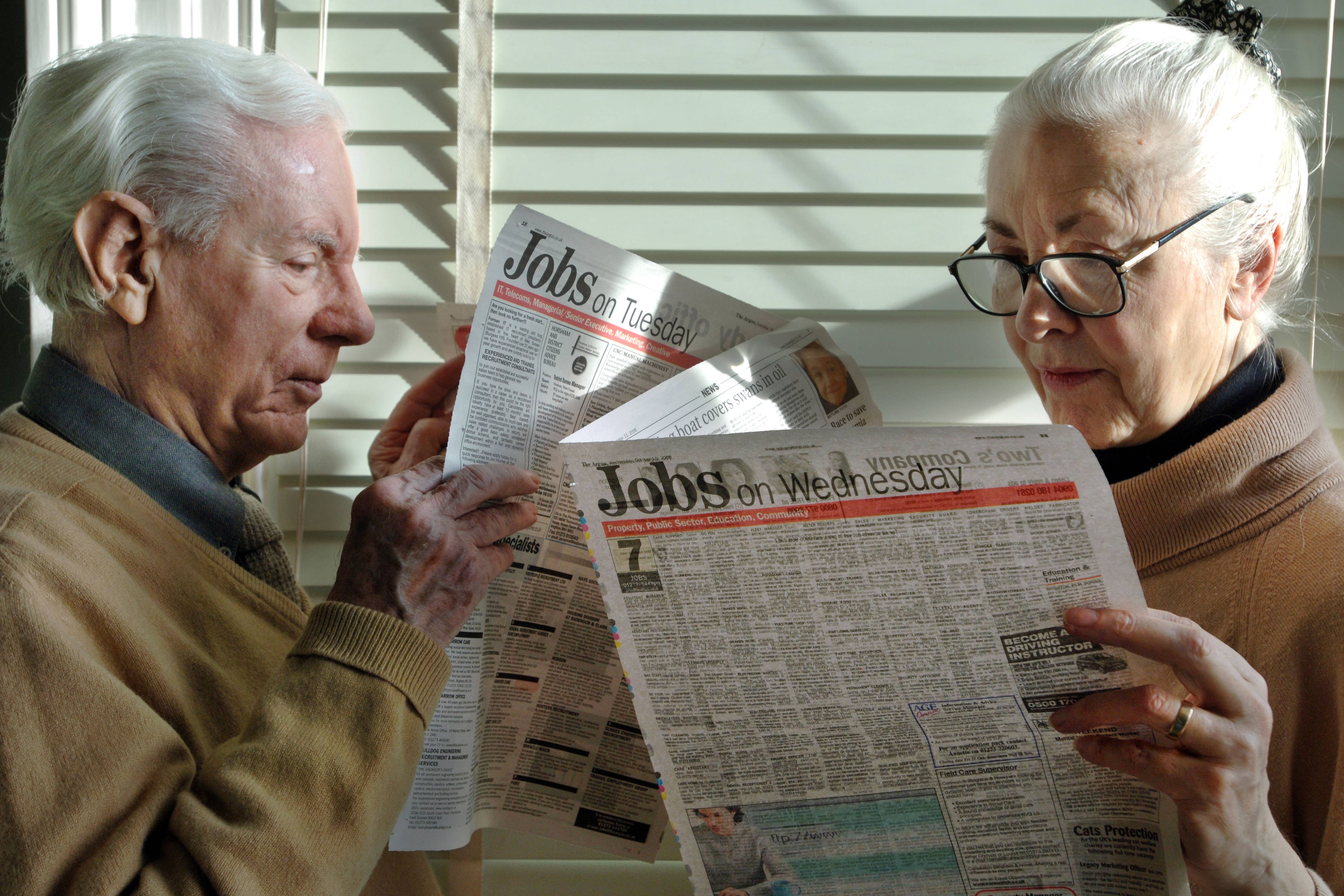Can you afford to retire?
Tough economic conditions mean more people are putting retirement plans on hold and looking at other ways to boost their savings. By Vicky Shaw.

Your support helps us to tell the story
From reproductive rights to climate change to Big Tech, The Independent is on the ground when the story is developing. Whether it's investigating the financials of Elon Musk's pro-Trump PAC or producing our latest documentary, 'The A Word', which shines a light on the American women fighting for reproductive rights, we know how important it is to parse out the facts from the messaging.
At such a critical moment in US history, we need reporters on the ground. Your donation allows us to keep sending journalists to speak to both sides of the story.
The Independent is trusted by Americans across the entire political spectrum. And unlike many other quality news outlets, we choose not to lock Americans out of our reporting and analysis with paywalls. We believe quality journalism should be available to everyone, paid for by those who can afford it.
Your support makes all the difference.The dream of being able to put your feet up and enjoy a well-earned rest after reaching retirement age appears to be fading, even for those earning above-average salaries.
Two in five (39%) of people surveyed across the UK expect to have to work full-time past the state retirement age, according to wealth manager Charles Stanley.
The survey, carried out by Censuswide in March, questioned more than 2,000 “mass affluent” people who are earning above the UK average salary and/or with at least £1,000 put away in accessible savings.
Some plan to set up their own small business, while others plan to continue working in their current sector, or take on work in a different one when they reach retirement age, the research suggests.
While retirement is a milestone that many will welcome, Charles Stanley’s research found that around two-thirds (65%) of consumers are worried about their retirement provision because of recent rises in the cost-of-living.
In addition to potentially working past state retirement age, people are also looking at other ways to make ends meet.
More than a quarter (28%) will be looking to sell some belongings, including clothing and furniture.
A similar proportion (29%) say they will depend on their partner’s pension in the future, potentially putting some in a vulnerable position.
Three in 10 (30%) say they will sell the main property that they live in when they retire, while nearly the same proportion (29%) will consider releasing equity from their home.
Lisa Caplan, director of Onestep Financial Planning at Charles Stanley, says: “Retirement is most certainly a milestone that many look forward to – whether it’s planning to relax, travel, enjoy a hobby, or spend time looking after grandchildren.
“While exciting, it can also feel daunting, particularly when it comes to planning to have the retirement you desire.
“Unfortunately, the rising cost-of-living has added a new challenge to the retiree landscape. Many will have had the rug pulled from under their feet, with hard-earned savings being eaten away by inflation, or needing to support more day-to-day living, meaning contributions to retirement pots diminishing.
“Access to financial advice is more important than ever as consumers navigate these tough financial times.
“For some, the prospect of retiring is difficult to comprehend, and whether for financial reasons or personal – retirement might not be an option.”
People approaching retirement can receive free guidance about their options from the Government-backed Pension Wise service.
A UK Government spokesperson says: “We recognise the pressures of the rising cost-of-living and are committed to protecting the most vulnerable, which is why we delivered the biggest state pension increase in history last month, making the new state pension over £10,000 per year for the first time.
“This is on top of a 10.1% boost to pension credit for those on the lowest incomes.
“There are 200,000 fewer pensioners in absolute poverty than in 2009/10, and we are repeating last year’s £300 pensioner cost-of-living payment as part of a wider £94 billion support package worth around £3,300 per household.
“We’re also continuing to help families with essential costs through our Household Support Fund.”